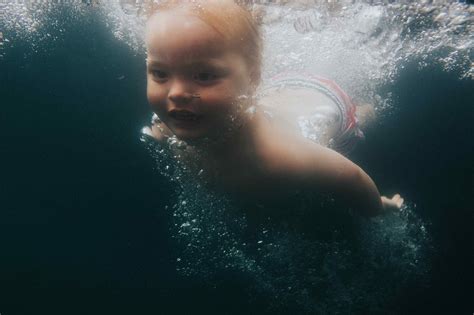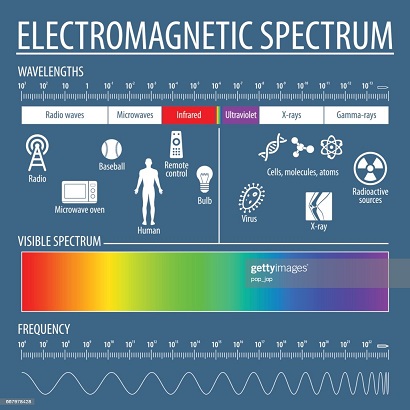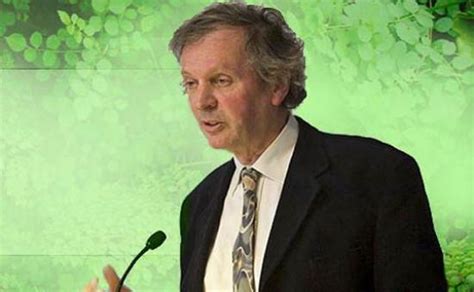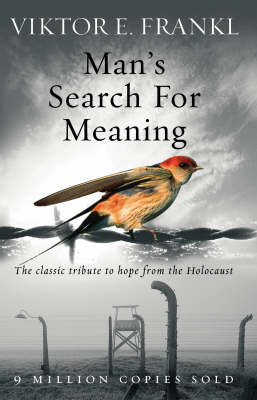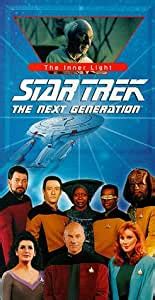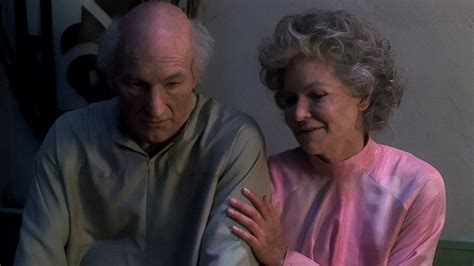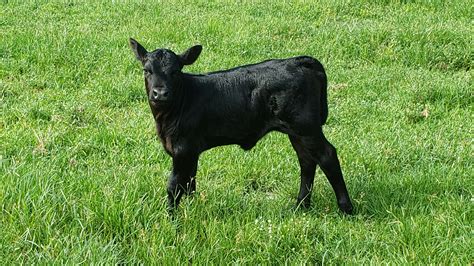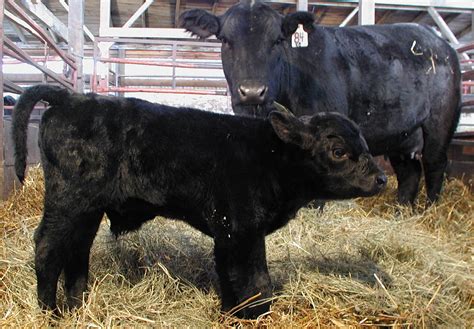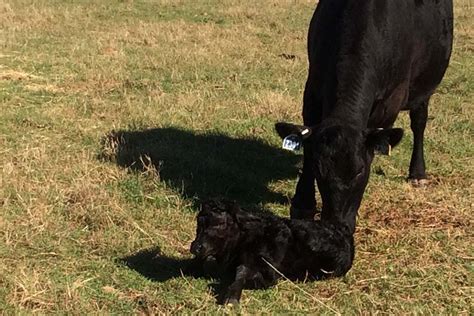|
home | what's new | other sites | contact | about |
|||||
|
Word Gems exploring self-realization, sacred personhood, and full humanity
Tom Campbell and the OBE
An “out-of-body experience” (OBE) can occur when one’s consciousness becomes disconnected from the five senses. Many people report undergoing this phenomenon, and websites are devoted to presenting thousands of testimonies from OBE reporters. See https://www.oberf.org/indexcontents.htm Tom Campbell, physicist, whom we’ve met in videos regarding the “Double-Slit experiment,” is also known for his research and first-hand knowledge, over decades, concerning the OBE. The following represents information - often, direct quotations - taken from Tom's many video lectures. There are hundreds. You can do your own topic-specific investigation of his talks by using this search tool: https://videosearch.my-big-toe.com
the OBE - it's not what you think The very term “out-of-body” experience is unfortunate. It’s a misnomer. It sends us in the wrong direction. We have been led to believe that human consciousness lives in the body; specifically, in the brain. Our culture, with its religious traditions, teaches that the human spirit is like a genie in a bottle. This is the materialistic view But it’s not that way. Consciousness does not live in a little house called the brain. And the OBE, fundamentally, has nothing to do with a spirit or a human essence struggling to free itself from the body. “we’re already out of the body” Editor’s note: Yes, all this is very non-intuitive. It's a large topic and cannot be entirely addressed here but only as brief introduction. You will find a thousand pages on the Word Gems site speaking to this issue, the nature of consciousness. Noted scientists such as Amit Gosmami, Rupert Sheldrake, Dean Radin, and a host of others, including the famous quantum fathers, explain to us that Consciousness, not matter, is the basis and ground of all being. “Consciousness is not in us, but we are in Consciousness.” See the various science articles that discuss this phenomena. What does it mean, “we’re already out of the body”? It means that human consciousness, the epicenter of who we are, is not localized in the body. Editor's note: See Rupert Sheldrake's discussion of fields of energy extending well beyond that of presumed sources. Our difficulty is that we’re materialists at heart. We believe that we are bodies; this entrenched view is a product of our conditioning and limited experience. And the body itself is only virtual, not real. This sounds like nonsense, but only because we’ve neither learned the strange facts of the “Double-Slit experiment,” nor have we allowed its implications to alter our thinking. We discussed this in “The Inferential Life.” If “we’re already out of the body,” then what is the OBE? It’s connecting to another “data stream,” beyond that of the five senses. Editor's note: These ideas are part of Tom's "virtual reality" analogy, his perception of things, discussed in the "Theory Of Everything" videos and on "The Inferential Life, Part II" page.
But if the OBE is not emerging from the body, as such, why do so many people report “floating to the ceiling” and seeing their body in bed? we see what we're programmed to see They see what their intentions and programmings lead them to see. Being "in the body" is part of a deeply rooted belief-system. It’s what they feel they “ought” to see because they’re convinced that, fundamentally, they are bodies, and so they require themselves to see the body in bed. Our beliefs, our intentions, rule. In the “holodeck” article we learned that there are worlds beyond Summerland which are created by human thought. But this ability to create with the mind, to a lesser degree, begins in this world. Those who study the OBE, and learn how to negotiate it, do not necessarily see a body lying in bed - or, if it is seen, it's not judged to be "the real me." It’s possible to travel to other worlds and dimensions with the advanced-level OBE. And those who’ve done this report of the amazing experience. But it takes quite a lot of practice, over quite a while, to be able to do this on demand. Is it important to learn how to do the OBE? I would say it's more of an elective, not a required course. Some of it could be considered recreation, but not vital. However, as Tom points out, the big benefit of the OBE is that it introduces to the burdened materialistic mind the grand revelation that our little 3-D planet Earth is not the whole of reality. It’s not even the kindergarten, and hardly even the doorstep. There’s a big universe out there, and the average person has no idea. This lack of perspective is a major reason why so many people stumble into the next world in a confused and debilitated state of mind. We are not our bodies. This is the materialistic view, and we've been taught this in school. But the body is not "the real me." The OBE is not the only way to learn of this truth, but it’s a good one. In the “500 tape recorded messages from the other side” we discovered that there's an entire class of people over there who are still very materialistic in their thinking; despite all their “godtalk,” they do believe that they are bodies, and therefore also believe that they need to transport their bodies to “higher levels” of heaven in order to be more spiritual. This is gross error. And it’s the cause of their progressive drift into greater levels of insanity. two kinds of OBE We've discussed the well-known version, (1) seeing oneself outside the body with an ability to travel the Earth, or outer space, or other dimensional planes of existence. But (2) there is another kind of OBE, another form of "detachment from the five senses," which, in its own way, though less glamorous than visiting outer space, may be far more helpful to us. We'll ask Kairissi and Elenchus to inform us.
Elenchus. The OBE is a new area of thought and investigation for me, but I’m rapidly seeing the value. Kairissi. Most people will assume we’re going to talk about “how to get out of the body,” but that’s not what this is about. E. First, let’s emphasize the essence of the OBE – it’s a “detachment from the five senses." K. The five senses are the customary avenues by which the mind receives data; the five senses serve as origin of our normal “data stream.” But, as Tom Campbell puts it, the OBE in reality is "connecting to a new data stream." E. And with this comment, we’re going to be misunderstood, because almost nobody knows what it means, “connecting to a new data stream.” K. Without the five senses, what do we have to feed us information? E. Those who receive information or data beyond the customary channels of the five senses are called mystics. These are ones who speak of intuition, or sixth sense, or spirit guidance. K. But nobody knows what any of that means, either. E. I think the best way of approaching this is to look at an example. I’m thinking of something Viktor Frankl wrote in his memoirs of the concentration camps; his “vision” of his wife. It’s something we’ve been familiar with for some time, but, I have to admit, it’s only been recently that I’ve thought of it in terms of an OBE. K. Was he “connected to an alternate data stream” with his vision? E. Let’s look at his testimony:
Viktor Frankl, Man's Search for Meaning: Recounting an Auschwitz experience: "We stumbled on in the darkness, over big stones and through large puddles, along the one road running through the camp. The accompanying guards kept shouting at us and driving us with the butts of their rifles... But my mind clung to my wife's image, imagining it with an uncanny acuteness. I heard her answering me, saw her smile, her frank and encouraging look... for the first time in my life I saw the truth as it is set into song by so many poets, proclaimed as the final wisdom by so many thinkers. The truth - that love is the ultimate and the highest goal to which man can aspire. Then I grasped the meaning of the greatest secret that human poetry and human thought and belief have to impart: The salvation of man is through love and in love. I understood how a man who has nothing left in this world may still know bliss, be it only for a brief moment, in the contemplation of his beloved. In a position of utter desolation, when a man cannot express himself in positive action, when his only achievement may consist in enduring his sufferings in the right way - an honorable way - in such a position man can, through loving contemplation of the image he carries of his beloved, achieve fulfillment... I resumed talk with my loved one: I asked her questions, and she answered; she questioned me in return, and I answered. "My mind still clung to the image of my wife. A thought crossed my mind: I didn’t even know if she was still alive. I knew only one thing, which I have learned well by now, love goes very far beyond the physical person of the beloved. It finds it deepest meaning in his spiritual being, his inner self. Whether or not [she] is actually present, whether or not [she] is alive at all, ceases, somehow, to be of importance. I did not know whether or not my wife was alive, and I had no means of finding out … but, at that moment, it ceased to matter. There was no need for me to know. Nothing could touch the strength of my love, my thoughts, and the image of my beloved. Had I known then that my wife was dead, I think that I would still have given myself, undisturbed by that knowledge, to the contemplation of her image, and that my mental conversation with her would have been just as vivid and just as satisfying. Set me like a seal upon thy heart. Love is as strong as death. "The guard passed by, insulting me, and once again I communed with my beloved. More and more I felt that she was present, that she was with me. I had the feeling that I was able to touch her, able to stretch out my hand and grasp hers. The feeling was very strong. She was there. Then, at that very moment, a bird flew down silently and perched just in front of me - on the heap of soil which I had dug up from the ditch - and looked steadily at me."
K. All of this is deeply moving. But many would say, in his severe suffering, he was hallucinating, or at least imagining. E. Yes… I think he was imagining; however, I have come to see that there's an elevated category of “imagining” far different from the ordinary garden-variety. K. We’ll have to unpack this carefully as this is new ground for most people. E. We all imagine things, but most of this is just an expression of the dysfunctional ego’s fears and cravings. K. In other words, the “data stream” for this lower-level imagining is the ego. E. But there’s a higher form of imagining which taps into another “data stream,” one disconnected from the five senses. K. We’ve now entered the strange and far country visited by mystics. E. Tom Campbell explains that we’re materialists at heart. We think that the essence of who we are is the physical body. But during times of great adversity, threats to mortal life and limb, it is possible that our attachment to the body becomes attenuated and thin. I think this is what happened to our friend Viktor. In the camps, when you never knew if the present day might be your last, if a guard might come along and beat you to death, one might naturally seek for surer footing in reality, beyond that of the body. K. I believe you are correct, Elenchus. And when Viktor says that he spoke to his wife, asked her questions, and received her response – how are we to take this? E. We’ve heard it said many times that those who share a love-bond are never separated. K. Yes, of course. And if we’re suffering under the illusion that “we are the body,” our “data stream” will stop with the five senses, and we will be unaware of the connection, or the presence, of the Beloved. But in times of extreme duress, one might loosen one’s attachment to the body and tap into “another data stream.” Elenchus… if this is true… this means that he actually heard her voice. E. He may have heard her actual voice, or, via that “alternate data stream,” he may have accessed her essential energy; and, having done so, may have been able to discern what she was thinking, or what she would be saying if she were with him, face to face. K. In all of this, we understand, better, Tom Campbell’s assertion that the OBE suffers under a terrible misnomer. It’s not about struggling to get out of the body; as he says, “we’re already out of the body,” in that, our essential selves are not rooted or localized in the body, or the brain. What happened to Viktor might be classified under the heading of the OBE, but only because he “disconnected from the five senses” and tapped into a higher “data stream.” E. I think Tom was very insightful to say that the OBE is a way for us to expand our education. We can use it to get information. The classic OBE is the “floating in space” kind, but the less sensational version has nothing to do with “going around the world” but, instead, allows us to send or direct the focus of one's consciousness to a particular place, person, or situation. K. We should point out, too, that this second version of the OBE is not necessarily initiated when we’re threatened with death. We can learn how to “loosen the attachment” to the body at any time. When we do, as Tom instructs, our intentions will send the focus of our consciousness on learning expeditions. It’s a way of gaining experience, wisdom, and understanding. E. Another example here will help to clarify. And this one is from the author. He told us about how, not long ago, he’d been very ill; lasting for three weeks, until recovery. He said this was the sickest he’d been in his whole life. And during the illness, in a state of semi-delirium, he reports that he underwent an OBE, not unlike, in principle, that experienced by Viktor. K. Elenchus, again, this is a situation, I think, of a threatened or weakened body, causing the percipient to “loosen ties with the body.” E. I suspect that’s what happened. And when those ties were loosened, he accessed another “data stream,” and saw things that normally he could never see. The author points out, too, that, in a small way, he’d tapped into an alternate data stream, from time to time, but these excursions were relatively brief. The new sickness-induced OBE, however, lasted for many hours, something like more than half a day, he said. K. There’s an old Star Trek NG episode, "The Inner Light," that will help us explain. It was briefly mentioned in the “holodeck” writing, but will serve us again.
K. While unconscious, Picard experienced 40 years of family life on a strange planet; however, the clocks on the Enterprise recorded a duration of less than half an hour. But it was all very real to the Captain, and the memories of his “hidden life” never left him.
E. Essentially, this is what happened to the author. In just hours, according to our clock-time, he lived, in a vivid way, 50 years of family life. And, in authentication of the experience, at the end, when delirium subsided, he found himself psychologically released of grief concerning certain missed opportunities in life, ones that had dogged him since boyhood. We’ll talk about this. K. Ellus, why don’t you encapsulate what the author experienced. E. His vision began, he said, with his attendance at state university in 1969. He became friends with a particular girl, one conjured for his “imaginings” – let’s call her Jane. He found her easy to talk with, but noted that he was not in love with her. Nevertheless, they found themselves spending more time together. Finally, while sharing dinner late one afternoon at the university cafeteria, they agreed to enter into discussion – hypothetical discussion at first – as to what they wanted from life, love, and marriage. He wouldn’t lie to her. He did not want to overstate his affection. Yet, they did have a pleasant affinity, and he did enjoy her company, and didn’t necessarily want to part from her. W. “You’re one of those ‘perfect girls’; you know, sort of with a ‘perfect resume.’ You offer everything a fellow would want – brains, beauty, competence, and graciousness. And we’re good friends, maybe even very good friends. And yet, I think it takes more than friendship to make a good marriage.” J. “I know what you mean, Wayne; and yet, as I look at the many married couples out there, I would say that very few of them could be considered friends. Most of them don’t talk that much with each other, and most are just ‘running the clock out’ and going through the motions. I don’t think we should so easily discount the fact that we’re friends.” W. “Ok, there is that. But I guess what I’m saying is that I always thought marriage should be more than friendship. I think chemistry is important. And part of me wants to hold out for ‘fireworks’ and ‘confetti parades.’ On the other hand, I like being around you. You’re a great person. I just don’t know if that’s enough.” J. “From my point of view, I don’t need ‘fireworks’ and ‘confetti.’ I’m not sure that anybody who’s been married for a while has that. You say that I offer the ‘perfect resume,’ and, well, I see you that way too. You’re a smart boy, Wayne, and you’re hardworking, and you’re virtuous. I would be fooling myself if I thought I could easily find someone better than you. And wouldn’t you say that mutual respect and admiration is also a form of love? And maybe the most enduring kind?” E. Over the coming weeks and months, she continued to make her case that they could do well together. Eventually, he relented, and they agreed to be married. She would become a teacher and work in the village near her father’s ranch. And he would partner with his father-in-law and build a registered Angus herd, a goal he’d had since he was a boy.
K. Elenchus, we should point out that this desire to have purebred Angus was no small item for him. The lack of this in his life caused him a good measure of subliminal grief. He’d even been bothered by the fact that this was a goal that could not be adequately addressed in Summerland, as no baby calves could be born there. And so, during his illness, his intentions, we might say, directed his consciousness to investigate this problem of “lost dreams.” And the friendship with Jane was part of this. Tom Campbell suggests that Universal Consciousness allows for, or provides, a kind of learning lab in the OBE. And this one was directed toward investigating a life-long desire to have an Angus herd.
E. In his vision, they did marry, and each worked in their planned-for fields of activity. Jane was happy building her house and family, especially with the coming of children. And the Angus herd was brought to fruition, as well; a dream realized. However, as time went on, he noticed, deeper within himself, a growing dissatisfaction with everything in his life. To the community, they appeared to have the perfect marriage: good work, beautiful children, and good relations between themselves. And yet, as he had feared, many years earlier, friendship, without something more, was not enough. K. We might also add, as per the author’s report, this vision unfolded with great detail. And it all seemed very real. The final scene in the vision, he says, was a Christmas morning. Like Picard, he was now quite an old man. While resting in a back bedroom of the house, he could hear his daughters and Jane in the kitchen preparing the holiday meal. He could also hear the sound of machinery outside as his sons were feeding the cattle in the cold weather. The quiet of the secluded bedroom, however, provided little peace, as he thought of his life and all that had transpired in 50 years. E. The vision finally ended on this note. K. And this is where it gets really interesting. He finally got his Angus herd. But, some might say, it was only a dream, he really didn’t get his cattle. Or did he? The author reports that, all of his life, since boyhood, he’d wanted those Angus, and for years, he’d inwardly grieved that he’d not been able to have this during his time here. However – and here’s the remarkable thing – after the vision, the author no longer had any desire to have an Angus herd. None. Not even a little bit. And no more concern, either, about having those cattle in Summerland. The craving was all gone. The OBE was so real to him that a goal of a lifetime had been entered into, fully experienced, and found to be “enough.”
E. I count all this as more than noteworthy, but actually there was another aspect to the OBE “learning lab.” At the outset, the author informs us, he wanted to experience living a life with a “Jane,” a “perfect resume,” but one he did not fully love. His question was, could it seem to be “enough” if one also had the life’s work one had always wanted? K. We’d like to know the answer to this. What did the OBE “learning lab” reveal to him? What did he see after “50 years”? E. The answer is nuanced and multi-faceted. He saw many things, and a very long writing might be produced to explore it all. However, he says – and this shocked him – he saw that having an Angus ranch was so time-consuming, so demanding of all his energies to make this work, that, if he’d been with his Twin Soul, he would have given up the goal of the ranch as not worth it – because, it would have taken him away from the one person who made life worth living. K. (softly) And what about living with a “perfect resume,” but one he did not truly love? E. That was a great mistake – but a great lesson learned from the vision. Their marriage, it might be said, was a perfected or higher-level John-and-Mary union, but, a John-and-Mary union, nevertheless; and despite all of the blessings of a good family life, all the bounteous plenitude of beautiful children, home and hearth, and rewarding career, none of this, at the end, could fill the “holes in the heart,” the debilitating existential crisis, of living without truest love. K. I believe he would sum up that “50 year life” with – “I should have waited for her.” Editor's note: I am writing this note two years after the "vision", and I'd like to report that my desire, my once life-long desire, to have an angus ranch has never returned to me. I find this remarkable. There was something about that "vision" which was very real. And, by extension, I now see that many provincial hopes and dreams which today, in our mortal lives, we might presently harbor, will yet be released in a more expansive frame of mind and sense of being; if not now, then in the next world.
|
|||||
|
|

